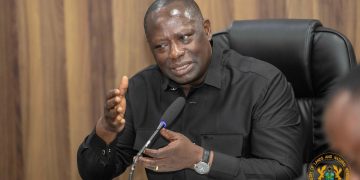IMF Approves $26.5m Disbursement to Liberia After Completing Article IV and ECF Review
The Executive Board of the International Monetary Fund (IMF) has concluded the Article IV Consultation and the second review of Liberia’s 40-month Extended Credit Facility (ECF) arrangement, approving the immediate disbursement of SDR 19.3 million (approximately US$26.5 million). This brings total disbursements under the programme to SDR 57.9 million (about US$79.4 million).
Liberia’s ECF arrangement—equivalent to SDR 155 million (60 percent of quota)—was approved in September 2024 to support the government’s efforts to restore macroeconomic stability, reduce debt vulnerabilities, preserve financial stability, and strengthen governance.
Program implementation has been broadly satisfactory, with five out of six performance criteria met. The IMF Board granted a waiver for the non-observance of the continuous performance criterion on the non-accumulation of external arrears, citing credible corrective measures taken by the authorities.
Following a post-pandemic rebound, economic activity moderated in 2024. Growth is projected at 4.6 percent in 2025, rising to 5.4 percent in 2026, underpinned by increased mining output—particularly gold and iron ore—and recovery in agriculture. Political stability has provided a supportive environment for the government’s medium-term development plan, the ARREST Agenda for Inclusive Development (AAID).
Commenting on the Board’s decision, Mr. Bo Li, IMF Deputy Managing Director and Acting Chair, noted that Liberia has made “notable progress in implementing sound macroeconomic policies and key structural reforms.” He cited measures to reduce the fiscal deficit, mitigate debt risks, and strengthen foreign exchange reserves as yielding “encouraging results.”
The Fund welcomed the government’s swift fiscal adjustments following the abrupt termination of major external grants, including USAID support, with authorities safeguarding critical social programmes by reprioritising spending and mobilising domestic revenue.
Looking ahead, the IMF emphasised the importance of deeper reforms in domestic revenue mobilisation, including the introduction of a higher-rate Value-Added Tax (VAT), income tax restructuring, and rationalisation of tax exemptions. Spending discipline and improvements in public expenditure efficiency were also highlighted as priorities.
On financial stability, the Fund acknowledged the Central Bank of Liberia’s interventions to address vulnerabilities in three banks, stressing that “steadfast implementation of a stronger regulatory framework” and completion of bank restructuring will be critical to support private-sector credit growth.
The IMF also underscored governance reforms, noting recent measures to strengthen the Liberia Anti-Corruption Commission and the ongoing governance diagnostic study, which is expected to underpin broader reforms aimed at improving transparency, attracting foreign investment, and promoting inclusive growth.








